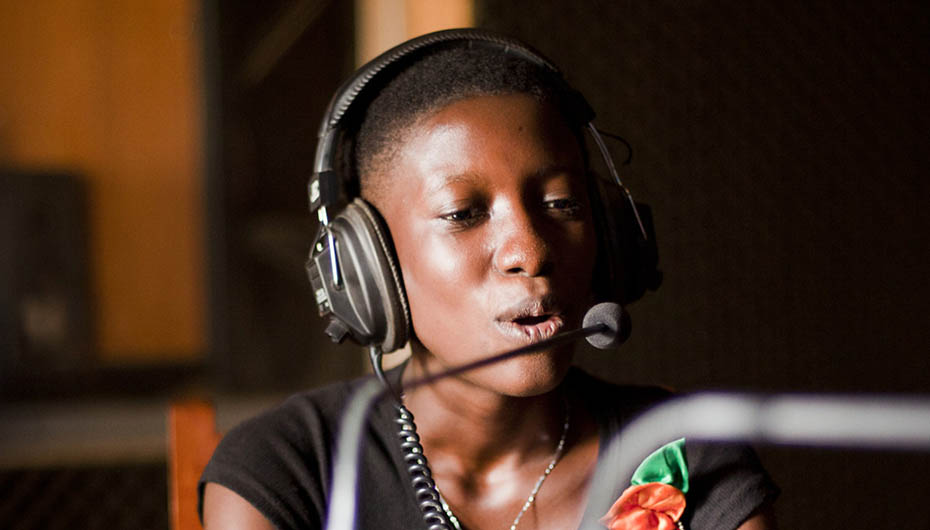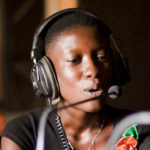Media Centre - Media release - 24 April 2019
Australian sportswomen face overwhelming sexism on social media, Plan International analysis reveals

Sportswomen face a tirade of sexist and belittling comments on social media, which negatively impacts girls and young women in the broader community who see the abuse, according to new research conducted by leading girls’ rights agency Plan International.
The snapshot analysis of social media commentary found that more than a quarter of all comments towards sportswomen were sexist, sexualised, belittled women’s sports or were otherwise negative in nature. The full report is available to download below.
The analysis looked at a selection of social media commentary on Facebook posts shared by major sports news broadcasters in Australia in the past 12 months, and found:
- Sportswomen face three times as many negative comments as men, at 27% compared to 9%
- Social media abuse of sportswomen is overwhelmingly sexist – 23% of all negative comments towards sportswomen were sexist in nature, referring to traditional gender stereotypes, while 20% belittled women’s sports, their athletic abilities and skills.
- Sexualised comments are only aimed at sportswomen – 14% of all negative comments towards sportswomen were sexualised, compared to 0% for male athletes.
- Whilst the majority of negative comments towards men focused on cheating or drugs, some sportsmen were also subjected to sexist abuse towards men: 15% of negative comments towards men referred to traditional gender stereotypes, which deem that they must not display weakness or emotion.
Plan International Australia CEO Susanne Legena said the findings had serious implications, particularly for girls and young women.
Girls and young women face threats to their freedom online and offline every day due to the level of sexist abuse and harassment,- said Ms Legena
“This toxic online abuse can not only have severe consequences for the victim’s wellbeing and mental health, but also for girls and young women in the broader community who witness this despicable behaviour and receive the message that they are not welcome in this space.
“Fear of discrimination and abuse is silencing girls and young women, restricting them from speaking out, participating and leading everywhere from social media forums to politics.”
Ms Legena said the online harassment was also perpetuating harmful traditional gender stereotypes, which have been linked to their low participation rates in sports.
“Girls and women have the right to be safe online and be free to speak up without fear of abuse.
“Everybody in our community has a responsibility to combat this toxic behaviour every single day by tackling attitudes that reinforce the idea that our girls deserve less respect, fewer opportunities and less pay than our boys.”
Plan International Australia is calling for action from the technology sector, media companies and governments, to improve equality for girls and young women online, including:
- Strengthen reporting – technology and social media companies should strengthen reporting mechanisms for gender-related abuse.
- Include girls in developing technology – to prevent new tools from amplifying existing inequalities, girls must be able to create technology and be included in design processes.
- Challenge harmful gender stereotypes – business and government should work together to initiative behaviour change campaigns that address harmful gender stereotypes, the root cause of abuse and harassment.
The snapshot analysis covered a range of sports – including AFL and AFLW, NRL, ice skating, boxing, WWE, cricket, tennis, and soccer – with over 1300 comments analysed, as well as responses to comments, discussion among social media users, and the use of emoji, GIFs and multimedia.
The Plan International Australia report comes after AFLW player Tayla Harris was targeted by social media trolls in March, bringing the issue of young women’s safety and freedom online to the fore.
Plan International is working around the world with girls – as well as boys – to tackle gender stereotypes, and is using sport to build girls’ confidence and promote positive masculinities through its Safer Cities Program.
Puja, 18, has changed her views on girl’s place in sport since joining the program in West Delhi, India, and now dreams of becoming an international touch rugby star.
Playing sport has empowered me. It has made me fearless. I speak and engage with boys as their equal. I can travel on my own and deal with difficult situations,Download the report
Media contacts

